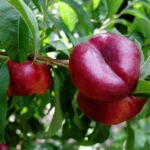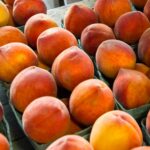Refugee resettlement could boost produce sector, say Aussie industry leaders

An Australian horticultural industry group is upbeat about the Federal Government's decision to resettle 12,000 Syrian asylum seekers, as forecast production rises will require more farm labor. 
In a release, Voice of Horticulture (VoH) chair Tania Chapman emphasized horticulture was the largest agricultural industry employer in the country, and was very reliant on seasonal workers including both backpackers and those on temporary work visas.
"The industry is worth about [AUD]$10 billion (US$712 million) at farm gate and while mechanisation of the industry is increasing, pruning and harvesting is still labour intensive," she said.
The group said Middle Eastern migrants from Iraq and Afghanistan had made a significant contribution to the sector in the Goulburn Valley and elsewhere.
"Middle Eastern workers have distinguished themselves by their work ethic, ability to pick up and apply skills as well as their commitment to the industry," said Craig Boyce, CEO of pome fruit and stonefruit consortium Integrity Fruit.
Apple and Pear Australia Ltd CEO John Dollisson said the horticulture was very accommodating with new migrants, who had provided the industry with a well needed supply of pruning and harvesting skills.
"Since the first wave of post-war migration, Italian, Greek and Turkish migrants have established themselves in the horticulture sector and are now major players and Vietnamese and Cambodian horticulturalists are now also prominent in the vegetable growing industry," Dollisson said.
The Voice of Horticulture is actively engaging with major employers and growers across Australia and seeking meetings with politicians to ensure that the labour hire arrangements are both attractive and flexible.
The horticulture industry currently employs more than 60,000 people across Australia, and will need more as plantings increase and demand for Australian fruits, vegetables and nuts grows in Asia, where recent free trade agreements (FTAs) with China, Japan and South Korea bode well for exporters.
The Voice of Horticulture, which represents horticultural growers and businesses across fruit, nuts, mushrooms, turf, nursery plants and cut flowers, has been discussing the need for increased flexibility in the minimum hours worked in relation to 417 (working holiday) visa workers as well as the possibility of a Green Card system to promote the increased transparency and traceability of imported seasonal workers.
The horticulture industry is the third largest agriculture industry by value and the largest agriculture industry employer and therefore an important contributor to the economies of many growing regions.
Photo: www.shutterstock.com











































